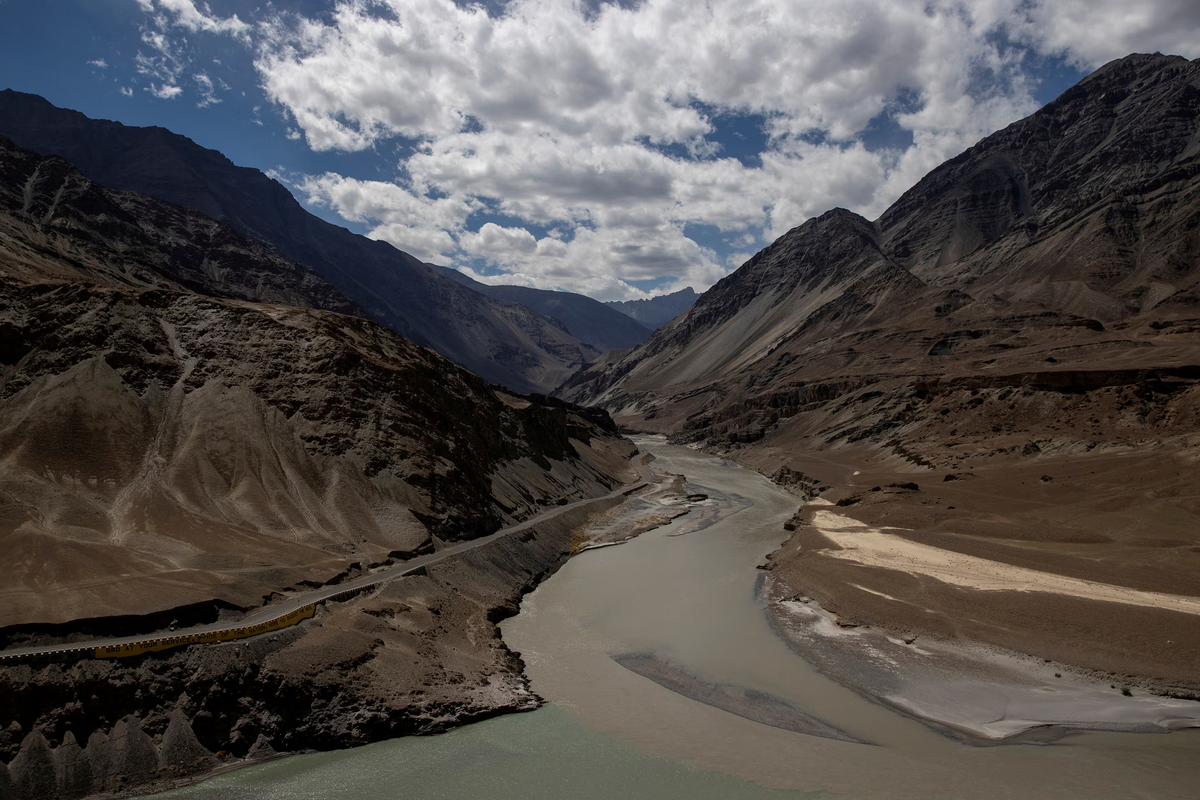India-Pakistan water treaty remains suspended despite ceasefire: report
The 1960 treaty regulates the sharing of water from the Indus river and its tributaries between Pakistan and India
Reuters
News Agency Partner
Reuters is a leading source of news and information, delivering fact-based reporting and expert analysis on international events and trends.

A highway being built by the Border Roads Organization (BRO) passes by the confluence of the Indus and Zanskhar rivers in the Ladakh region, India.
Reuters
The Indus Waters Treaty between India and Pakistan remains suspended, four government sources told Reuters, despite the countries reaching a ceasefire agreement on Saturday after days of deadly fighting.
The 1960 treaty regulates the sharing of water from the Indus river and its tributaries between the South Asian nations.
India pulled out of it last month after a deadly attack on tourists in Kashmir.
The decision was made at a high-level meeting of the Cabinet Committee on Security (CCS), chaired by Prime Minister Narendra Modi.
The treaty is widely regarded as one of the most successful international water agreements. Despite several wars and ongoing political tensions between India and Pakistan, the treaty has endured for more than six decades.
The Indus Waters Treaty divides the six major rivers of the Indus river system between India and Pakistan. Under the agreement, the three eastern rivers — Ravi, Beas, and Sutlej — were allocated to India, while the three western rivers — Indus, Jhelum, and Chenab—were allocated to Pakistan.
However, India retains limited rights to use the western rivers for irrigation and hydropower.
To oversee the implementation of the treaty, the Permanent Indus Commission was established, comprising one commissioner from each country.
The treaty also provides a structured, three-tier mechanism for resolving any issues that arise: questions are addressed by the Commission, differences are handled by a neutral expert, and formal disputes are referred to a Court of Arbitration.
The World Bank plays a procedural role, primarily assisting in the appointment of experts or arbitrators upon request.







Comments
See what people are discussing